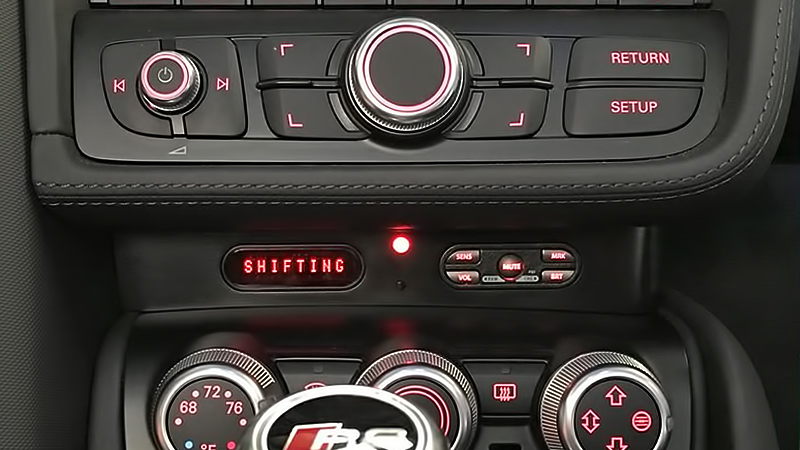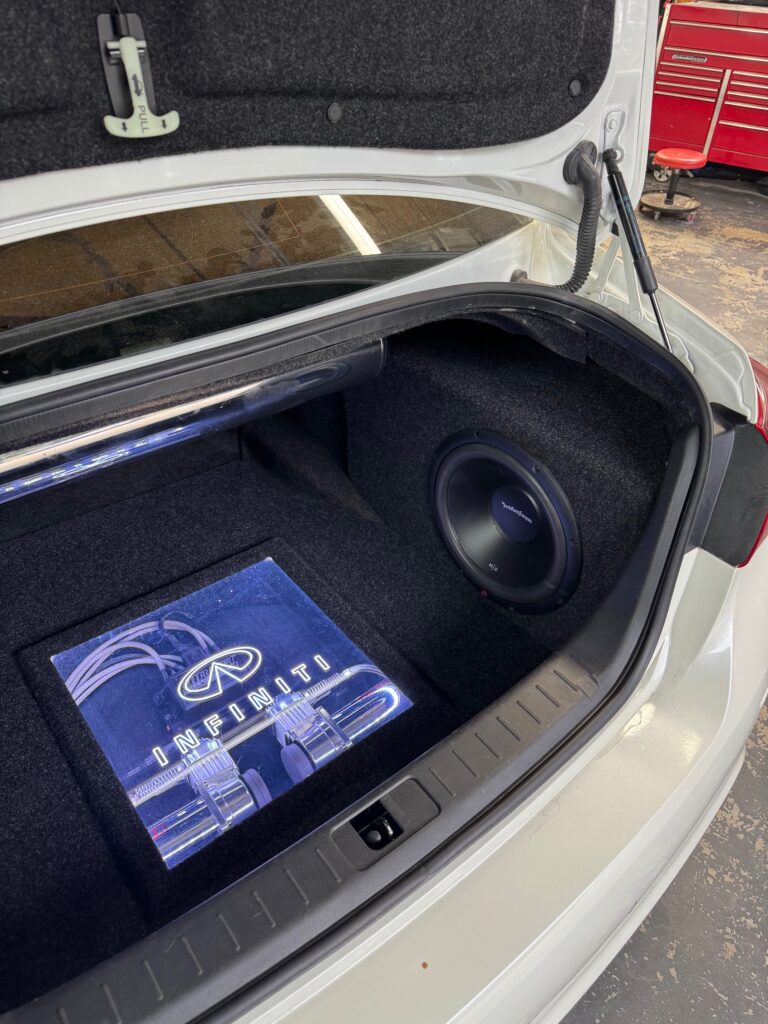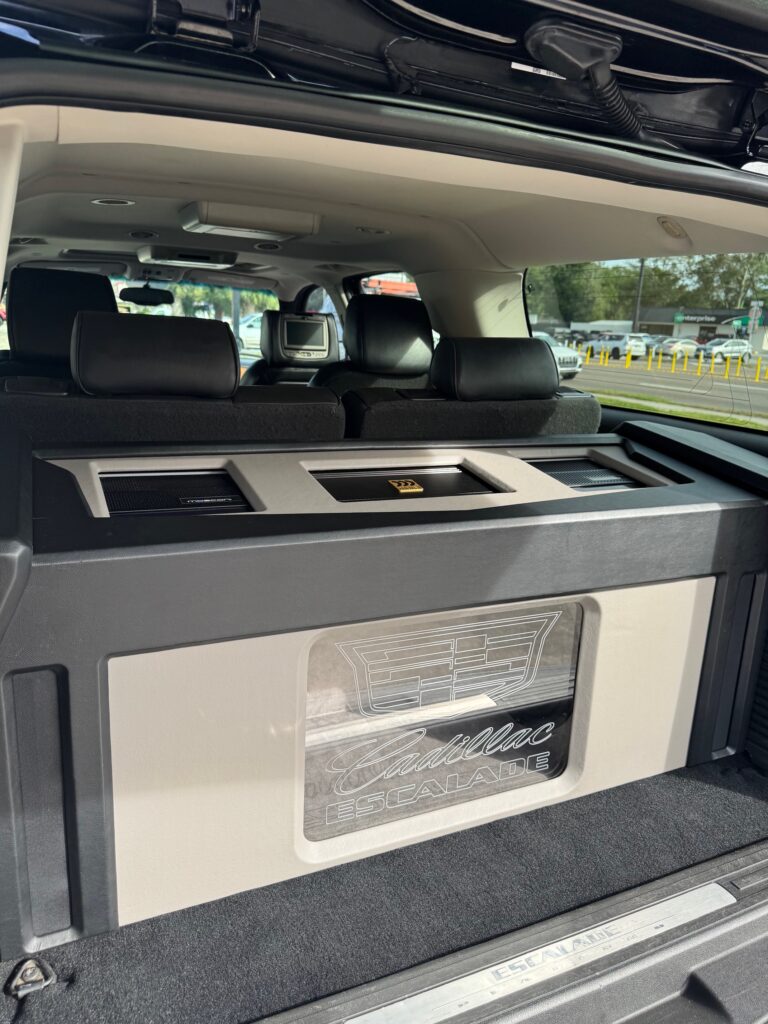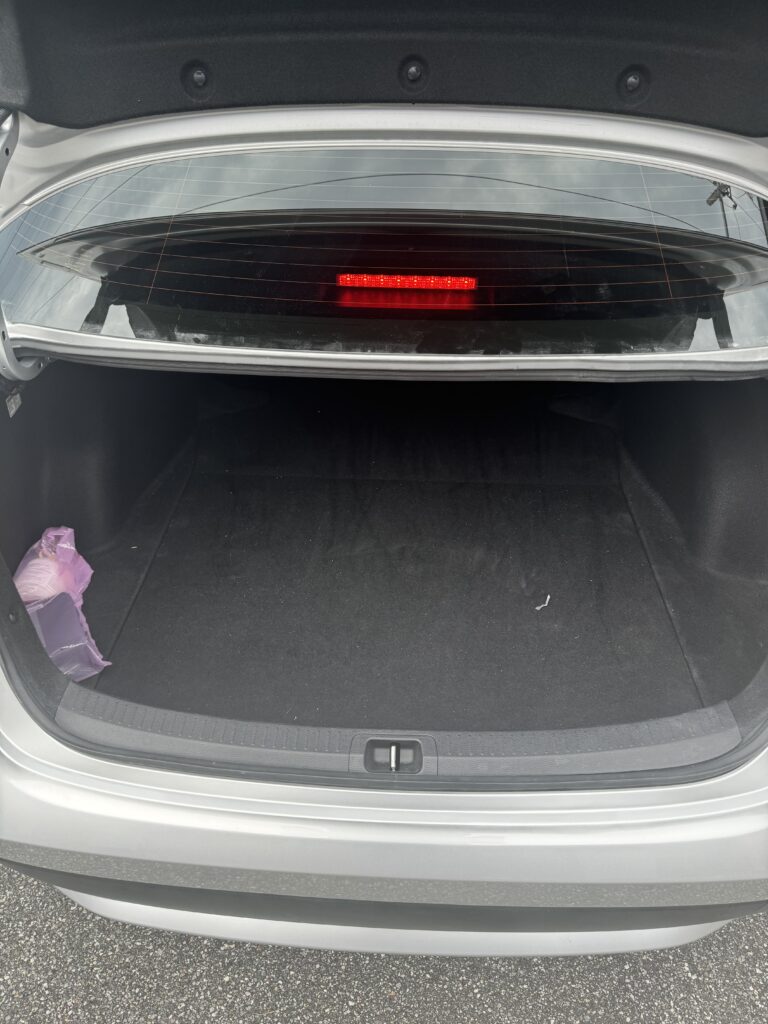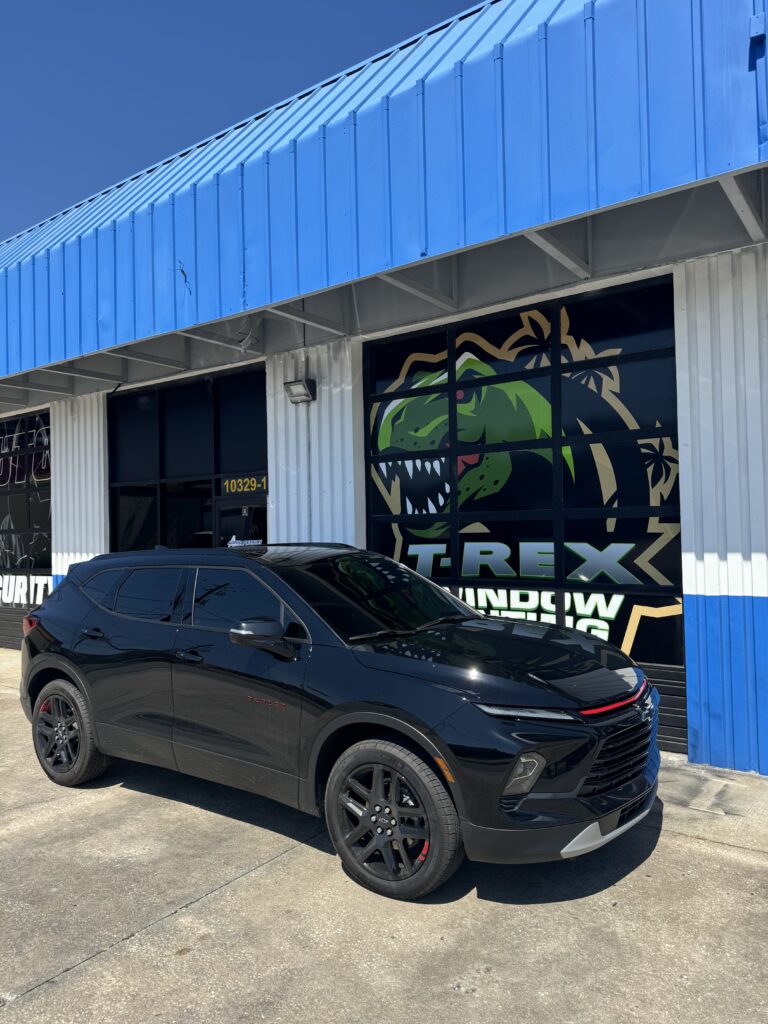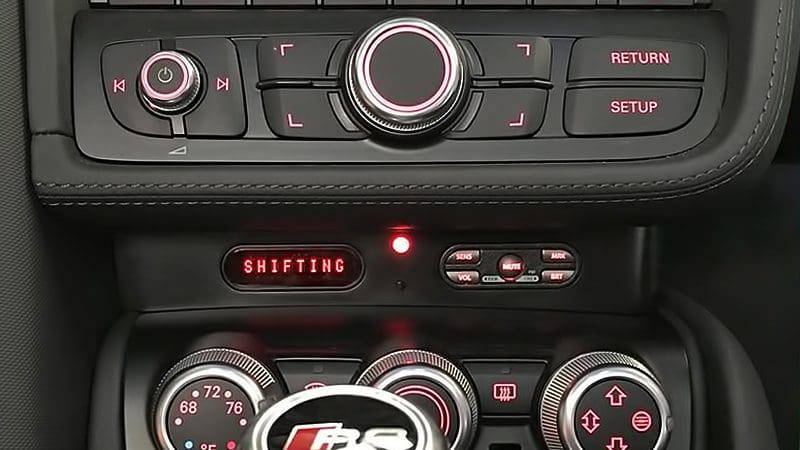 If you are looking for the best defense against police laser and radar guns, speed cameras, and radar-based work zone speed detection systems, then a custom-installed radar detector and laser countermeasure system is the only choice. This article compares the features and performance benefits of a portable radar detection system to one that we integrate into your vehicle.
If you are looking for the best defense against police laser and radar guns, speed cameras, and radar-based work zone speed detection systems, then a custom-installed radar detector and laser countermeasure system is the only choice. This article compares the features and performance benefits of a portable radar detection system to one that we integrate into your vehicle.
What is a Radar Detector?
Simply put, a radar detector is a device that includes one or more radio frequency receivers and a computer. The receiver is designed to focus on specific frequencies and report the presence of those signals to the vehicle operator. The goal of the system is to detect radar measurement signals used on vehicles in front of you and provide enough warning so you can slow down to a legal speed and avoid getting a ticket.
Law enforcement agencies in North America use three radar frequencies. X-band operates between 10.5 and 10.55 GHz, K-band operates between 24.05 and 24.25 GHz, and Ka-band operates between 33.4 and 36 GHz.
Why Custom-installed Radar Systems Offer Better Protection
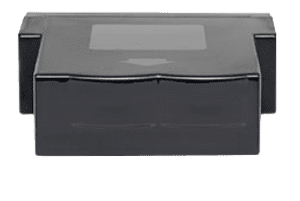
When comparing portable radar detectors to custom-installed systems, the biggest performance benefit comes from the ability to make the radar receiver larger. As with any antenna, more size means more sensitivity. The radar receiver included with a custom-installed detector is typically bigger than an entire portable radar detection device. In AM/FM antennae, a half-wave antenna offers more than twice the sensitivity of a quarter-wave antenna. The benefit to you is that a custom-installed radar detection system can detect weaker signals and provide an earlier warning so you can slow down sooner.
Some systems include separate receivers and amplifiers for the low-frequency X-band and the higher K- and Ka-bands. This configuration allows each antenna to be more sensitive within its specified operating range and requires less signal filtering and amplification.
Many radar systems that integrate with your vehicle include a second high-sensitivity detector for the rear of the car or truck. Many police forces use dash-mounted radar systems that function while the police vehicle is in motion. If an officer is following you, you will want to know if he or she is measuring your vehicle’s speed.
Police Laser and Lidar Systems
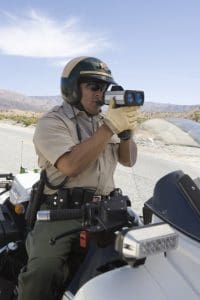 Many law enforcement agencies now use laser-based measurement systems. These devices send out a very narrow beam of invisible “light” that pulses in a particular pattern. The laser gun measures how that beam is reflected to calculate the speed of the vehicle it is measuring. The laser works with incredible accuracy. High-quality laser speed detection systems have a beam width of only 30 inches at a range of 1,000 feet and can operate up to 6,000 feet away. They are accurate to within 1 mph and can acquire a reading in as little as 0.33 seconds.
Many law enforcement agencies now use laser-based measurement systems. These devices send out a very narrow beam of invisible “light” that pulses in a particular pattern. The laser gun measures how that beam is reflected to calculate the speed of the vehicle it is measuring. The laser works with incredible accuracy. High-quality laser speed detection systems have a beam width of only 30 inches at a range of 1,000 feet and can operate up to 6,000 feet away. They are accurate to within 1 mph and can acquire a reading in as little as 0.33 seconds.
Laser detection systems look for energy between 830 and 945 nanometers and report it to the driver. The problem with laser speed detection is that once the officer has pulled the trigger, he has an accurate reading of your speed. There isn’t any point in slowing down.
Laser Detection versus Laser Defense Systems
A premium portable radar and laser detector that mounts to your windshield can alert you to the use of laser speed measurement. As we mentioned, though, once the officer has a reading, it is too late. Your only hope of avoiding a ticket is to detect beam scatter from another vehicle, then slow down before the police measure your speed.

The number one benefit of a remote mounted detection system is its ability to combat laser or lidar systems. In a laser countermeasure system, there are several compact transceivers mounted near your license plate and headlights – the most frequent target for police radar. When these sensors detect a laser measurement signal, they instantly start to transmit a signal to confuse the radar gun.
The second issue with portable radar and laser detection systems is location. As we mentioned, police target your license plate and headlights because these are reflective, in hopes of getting an accurate reading at long distances. Your portable detector, mounted up high on your windshield, may offer excellent radar detection range, but can miss laser signals altogether due to that height.
Some custom installed radar detectors include laser functionality, and some provide it as an option. Talk to your retailer to ensure you are getting the protection you want.
How to Use a Laser Defense System
If a police officer targets your vehicle with his laser gun and pulls the trigger, he will be expecting a result almost instantly. If your laser defense system prevents him from getting a reading, the officer will quickly realize you are using a countermeasure system. To prevent him from following you for the next 10 miles or until you do something wrong, there is a suggested etiquette to using laser defense.
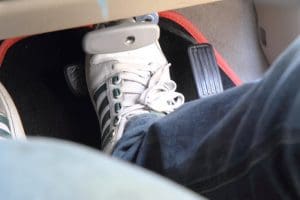 As soon as your laser detection system alerts you to the use of a radar gun, slow down quickly. Obviously, slamming on the brakes will attract attention. Smooth and steady deceleration is the ideal. As soon as you are at a legal speed, cancel the laser countermeasure system and let the officer take a reading. If that is executed smoothly, the officer will leave you alone and move on to measuring the vehicle behind you.
As soon as your laser detection system alerts you to the use of a radar gun, slow down quickly. Obviously, slamming on the brakes will attract attention. Smooth and steady deceleration is the ideal. As soon as you are at a legal speed, cancel the laser countermeasure system and let the officer take a reading. If that is executed smoothly, the officer will leave you alone and move on to measuring the vehicle behind you.
The only defense against police laser/lidar is a custom-installed laser countermeasure system.
Reduce the Clutter
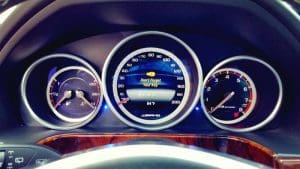
If you are like us, then you hate clutter in your vehicle. There are some nice mounting brackets for portable radar detections, but they still detract from the appearance of your vehicle. Depending on the brand of custom-installed radar detection systems, there may be a small control panel that we can mold into your dash or center console, or no visible control panel at all. In these “invisible” systems, all of the alerts are handled with audible warnings and a pair of small LEDs. Eliminating connections to your cigarette lighter plug and suction cup marks on your windshield keeps your vehicle looking organized and tidy.
From a safety perspective, having a radar detector on your windshield will block some of your vision. The percentage of windshield area that a portable radar detector takes up is small, but every square inch counts when it comes to safe driving.
Protection against Theft
Dash and windshield mounted radar detectors are prime targets for thieves. The complexity and distributed design of custom-installed radar detectors make them too much hassle to steal. Even if thieves were to break into your vehicle, they would only be able to get a few parts of the system. The result is that there is no resale value, so they leave these systems alone.
Complete Vehicle Integration
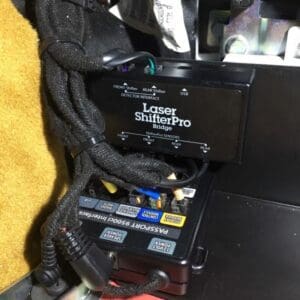
Depending on the features and complexity of a remote-mount radar detector system, there could be as few as three components, or more than a dozen modules and sensors. We mount each component in a location that ensures reliable operation and protection against damage. We route the system wiring with factory harnesses and protect it with split loom or cloth tape – whichever best matches the OEM style of your vehicle. We make the electrical connections mechanically and electrically secure so they will function flawlessly for years.
When we install a radar detector and laser defense system in your vehicle, it becomes an integral part of your car or truck. You will never forget to bring it with you. You will never forget to turn it on. It is always ready to protect you.
Visit Your Local Mobile Enhancement Retailer Today
If you are looking for the best defense against police laser/lidar and radar guns, the only choice is a custom-installed radar detector system. Most systems are nearly invisible once installed, and the laser shifter/defuser modules can be integrated into your vehicle cosmetics beautifully. Visit your local mobile enhancement retailer today to discuss the options for your vehicle.
This article is written and produced by the team at www.BestCarAudio.com. Reproduction or use of any kind is prohibited without the express written permission of 1sixty8 media.

